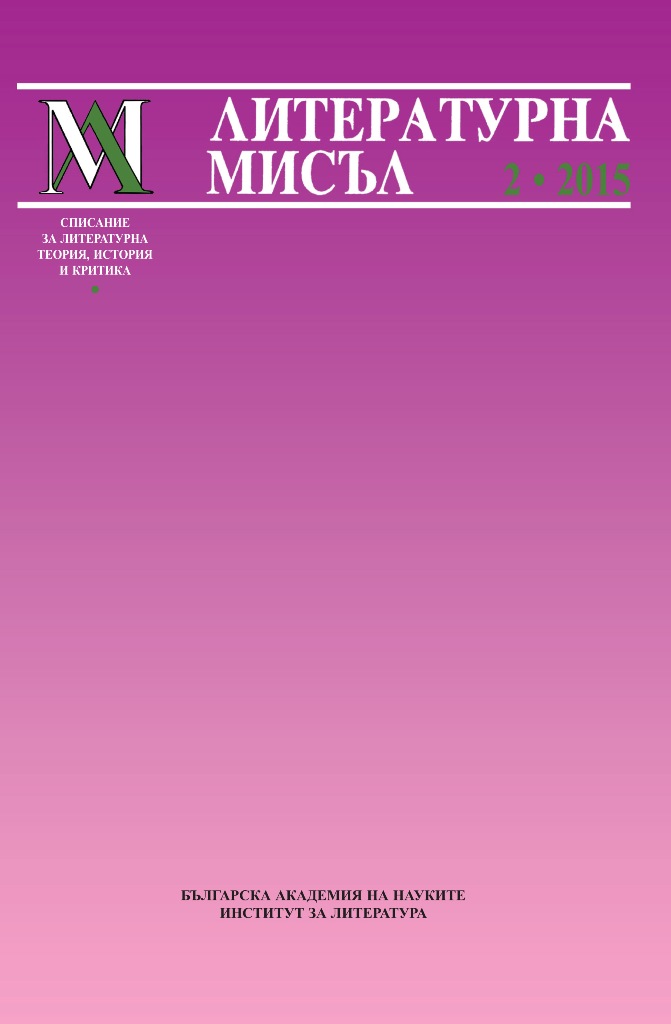Автобиографията на Григор Пърличев като ‘автожитие’
Grigor Parlichev’s Autobiography as a “self-hagiography”
Author(s): Raymond DetrezSubject(s): Literary Texts
Published by: Институт за литература - БАН
Keywords: Grigor Parlichev; autobiography; hagiography; topoi
Summary/Abstract: Among the many Bulgarian autobiographies written in the national revival period, that by Grigor Parlichev one occupies a particular place due to its highly fictional nature. On the one hand, the author provides very little factual information on the historical developments he participated in; on the other hand, he widely elaborates on events with little documentary relevance, inserting dramatic dialogues that cannot possibly be authentic. These particularities of Parlichev’s Autobiography can be explained assuming that Parlichev used the medieval zhitiye (hagiography, vita) as a model for his own biography. Strikingly, nearly all the topoi of the zhitiye as described by Th. Pratsch in his exhaustive Der hagiographische Topos. Griechische Heiligenviten in mittelbyzantinischer Zeit (Berlin, New York, 2005) also feature in Parlichev’s work, moreover in roughly the same order. The most elaborate episodes in Parlichev’s Autobiography ― his victory at the Athenian poetry contest on 1860, which made him a Greek celebrity, and the weeks he spent in prison in Ohrid and Debar in 1868 ― transpire to be secularized versions (in the spirit of national revival) of the main topoi in most hagiographies: the temptation of the saint and his or her suffering for the sake of Christ. As a result, Parlichev succeeds in similarly representing himself in his Autobiography as a “martyr” for the Bulgarian national cause. Happily for the reader, this whole operation is accompanied by a refreshing dose of (unconscious?) self-irony that sometimes makes Parlichev’s Autobiography remind of Sofroniy’s Life and sufferings.
Journal: Литературна мисъл
- Issue Year: 2015
- Issue No: 2
- Page Range: 56-79
- Page Count: 20
- Content File-PDF

